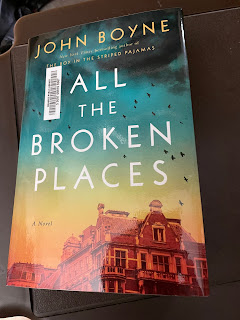The novel alternates between past and present. Burdened by her father’s war crimes, Gretel’s condemned to a life of isolation and fear. A finely crafted book, nuanced and layered, it’s a true page-turner. My only criticism would be of David, one of Gretel’s love interests, who struck me as weak and undeveloped.
The poignant opening line bears repeating. “If every man is guilty of all the good he did not do, as Voltaire suggested, then I have spent a lifetime convincing myself that I am innocent of all the bad.” (p. 3) Who wouldn't love to craft such an opening line?
We can’t choose our families, we can’t change our past. Guilt is a fascinating topic to explore and one I examine through my own writing. War novels offer much opportunity to explore the weight of regret, of guilt and of shame.
Katya, fictional protagonist of my books, carries a heavy load of guilt throughout her life. Guilt separates people from each other and that isolation then feeds the guilt. Through books, through the art of fiction, that powerful barrier can melt as people connect and empathize.
In one scene, Boyne’s character, 91-year-old Gretel, converses with nine-year-old Henry of contemporary London. Gretel tells the avid young reader about the Nazi book burnings of the 1930s. “Why would anyone ban a book?” he asks, and she replies, “Bad people. … They were afraid of them, you see. Frightened of ideas. Frightened of the truth.” (p. 359).
Books are powerful. Some people call novels ‘brotloße Kunst!’ (breadless art). But they’re wrong, books are the bread that feeds our minds.




No comments:
Post a Comment